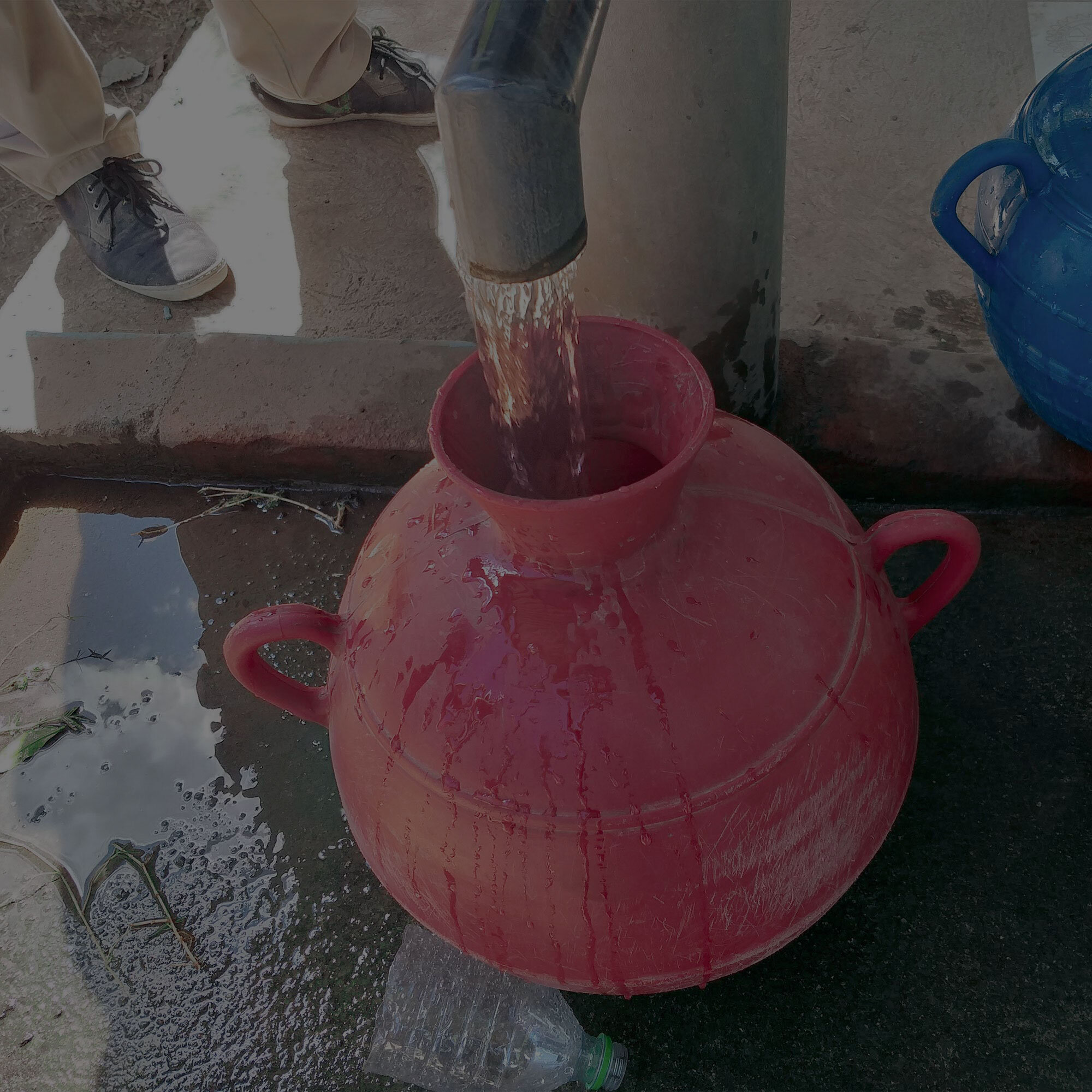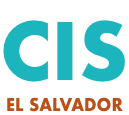
Lack of clean water reinforces the cycle of poverty.
In El Salvador, 12% of the population has no access to clean, potable water. And 90% of the country’s surface water is contaminated by untreated sewage, agricultural and industrial waste.
Consuming water contaminated with parasites, bacteria, and fungi can cause debilitating and chronic disease and can lead to death. Children are vulnerable to amoebic dysentery, which has a 50% mortality rate when severe.
Families often cannot afford the medicine to treat or cure waterborne illnesses. Sick children miss school and adults miss work.
We work to break that cycle.
Since 2011, the CIS’s clean water and environment program offers households water filters and training in their maintenance. We have partnered with others to install water tanks, wells and hand pumps.
Communities form water committees, learn from CIS promoters about access to clean water as a human right according to international law, and organize activities to improve their health, reduce waste, and care for their watersheds.
Some key outcomes:
Clean water for more than 3,000 families
13,000 people benefiting from clean water access at 40 schools, clinics and community centers as a result of our partnership with Clean Water for the World
65 families with access to flush toilets, potable water and sewage systems
Sustained impact via local water and environment committees, schools and health promoters in 9 communities
Land purchases and new potable water systems to access water sources in 5 communities

Achieving and Sustaining Clean Water Access Takes:
Clean Water Committee
In each community, we work with a local Clean Water and Environment Committee. If none exists, the community must organize one that represents its residents.
We train and advise them on how to communicate effectively with fellow residents and with their local officials.
We work with each committee to make a work plan and coordinate all clean water activities.
Each committee trains households in filter maintenance, plants trees, organizes trash pick-up and recycling, develops organic gardens, raises awareness about environment management, and organizes other activities.
Water Testing
We work with each Water and Environment Committee to coordinate testing by local health clinics of the water sources for contamination.
We also coordinate the testing of family members for ingestion of amoebas, bacteria and parasites.
We use this information to educate the community on the risk level and the costs and consequences of waterborne illnesses. This data also serves as a baseline.
Changing Habits: Training and Monitoring
We provide training for households with greatest need for water filters and some workshops for the entire community on:
the effects of contaminated water
how we contaminate water
how to prevent contamination
good hygiene habits
how to avoid ingesting contaminated water
how to use and clean water filters and purification systems
responsible environmental practices for clean water
how to teach others
Household Water Filters
Your direct donations pay for the water filters that we distribute.
Each filter goes to a household that has completed the CIS training and receives maintenance.
We ask for a symbolic payment of $10 from each household toward the cost of two accompanying buckets worth $26) to which the filter is afixed. This improves each family’s stake in using the filters and enables us to reach more families.
Building Local Relationships
Building relationships with local schools, clinics and community centers is also essential for consistent education and practice of good habits for clean water and a clean environment.
They are also key stakeholders to coordinate the installation of improved water infrastructure.
Installation of Water Infrastructure
We also coordinate with the local stakeholders and a number of partner organizations for the installation of water infrastructure that will benefit the entire community in the long term.
This has required the purchase, installation and community management of a range of assets:
Water purification systems
Purchases of land with a water source
Water tanks (for potable water)
Well drilling
Solar-powered water pumps
Hand-operated water pumps
International
Partners
We have worked with a number of strategic partners to pool resources and improve water infrastructure in communities without it. Sometimes this means installing water access by local schools. See all of our partners in CIS programs on this page.
PeaceHealth: water filters
Clean Water for the World: installation of industrial water purification systems
Rainbow of Hope for Children: land purchase, well drilling, and water tank and water pump installation
The Joe DeRaymond Memorial Fund: land purchase, well drilling, and water tank and water pump installation
Caminos de Acción: Household water filters and training, and sewage system infrastructure
Agua Viva: well drilling and hand pump installation

$75 will provide a family with clean water for 8 years!
To expand into a new community, at least 15 Salvadoran families need to be organized and receive clean water training ($1,125).
This program is made possible with donations from individuals and the following donor communities:
PeaceHealth
University of Toledo Engineering Students
Visitation Parish
St. John Fisher Parish
Faithworks
Give Safe Water
St. Elizabeth Parish
Impact of the Clean Water Project
“At first the families did not want to pay the symbolic $10 for the filter and bucket system. They said they did not have the money. I asked them, ‘In the last six months, how much have you spent on bus fare to go to your health clinic? How much have you spent on prescriptions? How many days of work did you miss? How many days of school did your children miss?’ They calculated that it was about $60 - $100 of bus fare and prescriptions, without including income loss for missing a day of work! The families that resisted paying the $10, later wanted to join the program when they heard about the results from their neighbors.”
- Leslie Schuld, CIS Director
“Our water system collapsed during the Tropical Storm 12 E in October 2011. Due to landslides that blocked the roads, we were cut off for 10 days. With the filters, we caught rainwater and provided drinking water to all the families in our village of San Luis Los Ranchos, protecting us from grave illness and even saving our lives.”
- Community Member of San Luis Los Ranchos
Before the CIS began the Clean Water project, my clinic spent all of its resources treating waterborne illnesses. Now we have the ability to invest resources in the prevention of teen pregnancy, dengue and other community health issues.”
– Doctor from the health clinic in Isla El Espíritu Santo
“The kids are getting better grades and attending school every day. Before, they suffered from amoebas and parasites that made them miss class or affected their attention when they were in class.”
- School Director, Isla El Espíritu Santo.

Incorporate the Clean Water program into your next delegation visit.
Visit communities in need of filters or a water purification system.
Raise funds in advance to purchase water filters for that community.
Participate in installing water filters and water purification systems. Engineering students and others without technical know-how have done this when the receiving community has been trained prior to the visit.

Our distribution of home water filters has provided clean water to over 14,600 people in more than 29 communities in 22 municipalities.
New water purification units installed in more than 38 communities in 20 municipalities have provided clean water to nearly 12,746 school children and others
Installation of Industrial Water Purifiers in partnership with Clean Water for the World since 2012:
| Location | # of Beneficiaries |
|---|---|
| Centro Escolar Santa Olaya, Tejutepeque | 92 |
| Centro Escolar Caserío Azacualpita, Tehutepeque | 107 |
| Colegio Espíritu Santo, San Rafael Obrajuelo | 289 |
| Hermita Santa Catalina, Llano La Hacienda, San Isidro | 200 |
| Centro Escolar Llano La Hacienda, San Isidro | 95 |
| Total 2019 | 783 |
In addition to installing 5 new units in 2019, CIS water promoters did maintenance and follow up on 34 previously installed units and met with the local water committees that manage them.

How the CIS Clean Water and Environment Program Began
The CIS began to work on the issue of clean water with Isla El Espíritu Santo (the Holy Spirit Island) in 2008 when they told us that many of the children and adults were severely ill with dysentery due to contaminated water. We had been working there since the aftermath of Hurricane Mitch in 1998 -- with the support of CIS partner St. Thomas Episcopal Church in New Hampshire -- to help women organize a microenterprise to raise and sell pigs and, later, another cooperative to make candy.
We learned about the complicated problem of contaminated water and researched what kind of filters would be effective. After distributing some filters, we observed some families using their buckets with the filters for their hens to lay eggs in. Why? Because having a place for their hens to lay eggs was a more immediate need. They knew their water was contaminated, but they had accommodated to that reality their whole lives.
This taught us early on that access to clean water would take both providing filters and raising awareness to change people’s habits.
Like we know from all of CIS solidarity work, simple charity or hand-outs are not enough; the community needs to empower itself with new knowledge, skills, and an ability to organize in order to have a transformative impact.
The first filters we found accessible were clay filters which we purchased from another non-profit working on water. We took them out to the island, did training, and we thought we were set.
Later we had a group of science students from Loyola University in Los Angeles visit. They tested the water samples before and after it was filtered, only to find that the sand filtration system in the clay filters if not changed regularly through a complicated process resulted in the water actually being more contaminated than before the filtration process.
After a couple of years trying and testing the use of water filters, two delegations of CIS partners – Sister Susan Dewitt from PeaceHealth and Jean Stemmermann, then of St. Patrick’s Church in Kansas City -- both happened to bring a donation of Sawyer home water filters. Recent tests of water samples of households using the original clay filters -- which we carried out in collaboration with science students from Loyola University in Los Angeles -- had shown that the sand filtration system of the clay filters could actually result in higher levels of contamination when not changed regularly (a complicated process).
So, we were searching for a new filter system to replace the old. We did several professional lab tests on these new Sawyer filters where they proved effective. Then, we began to distribute filters to various communities and our Clean Water Campaign became CIS Clean Water and Environment Program!
We found the filters were easy to use and durable, they needed no replacement parts, and they worked!











